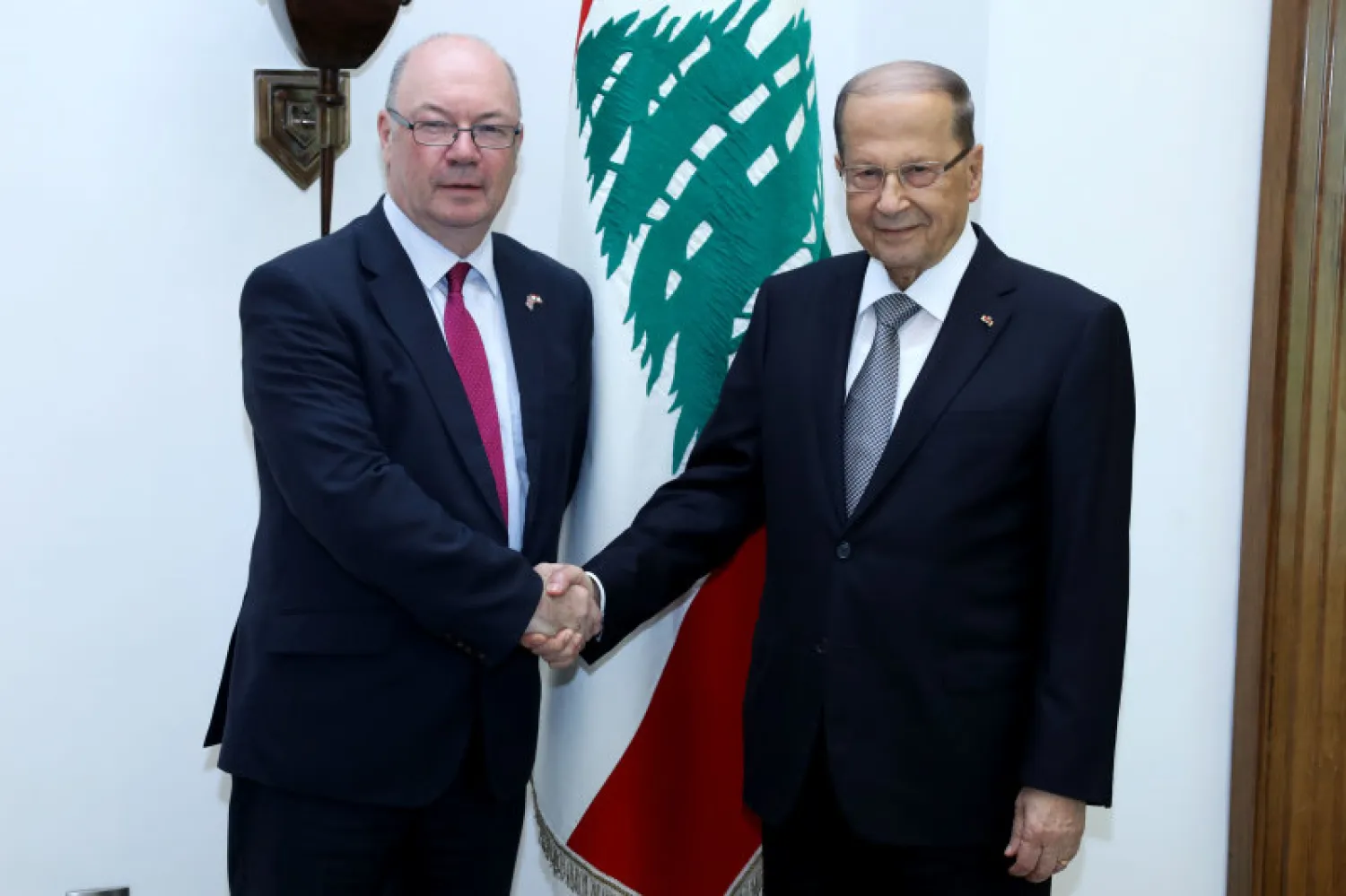President Michel Aoun has reiterated Lebanon’s rejection to naturalize any non-Lebanese national on Lebanese soil, calling for a swift solution to the Syrian refugee crisis.
Lebanon demands “speeding up a permanent solution to the Syrian crisis," Aoun told visiting British Minister of State Alistair Burt at the Baabda Palace.
Burt is Minister of State for the Department for International Development and Minister of State for the Foreign and Commonwealth office.
According to a statement from the presidency, Aoun thanked the British government for its continued support for the Lebanese Army, including the special forces protecting Lebanon's eastern border.
"Aoun called for more British aid to the Lebanese army to maintain stability and combat terrorism," the statement added.
The president also thanked the UK for its support in extending the mandate of the United Nations Interim Force in Lebanon (UNIFIL), stressing that Israel continues to violate Security Council Resolution 1701.
Britain should work on stopping “the Israeli aggression on Lebanon and cease its recently increasing threats,” Aoun said.
In his turn, Burt said his country “will continue to provide assistance” to the Syrian refugees in Lebanon.
He lauded Lebanon’s hosting of a large number of displaced Syrians.
He also praised the Lebanese army’s achievement in liberating the jurud area on the eastern border with Syria from terrorists.
During his visit to Beirut, Burt also met with Speaker Nabih Berri and Foreign Minister Jebran Bassil.









